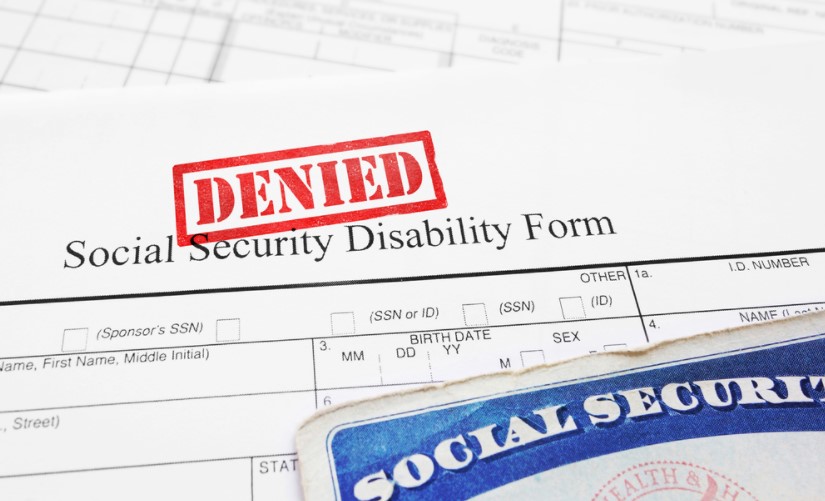Chronic pain is one of the top complaints when claimants are applying for disability. Acute pain is three months or less. Chronic pain lasts longer than three months – six months. Pain is hard to describe and hard to prove.
If you are in pain, it is often difficult to convince others? If you can successfully prove that you are in pain, doctors can better diagnose and treat all aspects including how pain affects your body, emotions, and mind.
Once your doctors understand how pain impacts your life, they can choose a multimodal treatment plan. This plan can include medications, physical therapy, injections, surgery, and referrals to other specialists.
How Does Chronic Pain Manifest
Chronic pain can manifest anywhere in the body. The common areas include back pain, headaches, joint pain, nerve pain, and generalized muscle pain.
Your doctor may classify your chronic pain symptoms as chronic regional pain syndrome, Somatoform Disorder, carpal tunnel syndrome, fibromyalgia, arthritis or peripheral neuropathy, etc.
Common health conditions that cause pain include Fibromyalgia, Migraines, Rheumatoid Arthritis, Osteoarthritis, back pain, and Osteoarthritis?
Medical Evidence Of Pain
Chronic pain may manifest as a diagnosable illness. Medical evidence needs to prove that you have severe impairment such as X-rays, CT scans, MRIs, ultrasound, and other objective medical tests can Laboratory data is chemical evidence.
If you do not accurately describe your pain to your doctor, this may lead to misdiagnosis, expensive, unnecessary testing, which can cause delays, and treatment that will not help you. Your doctor needs to understand the physical and psychological aspects of your pain.
Providing your doctor with a snapshot of a week or more in time that describes your pain associated with activities can be helpful. The sooner your doctor or other treatment providers pinpoint the cause of your pain, they can formulate a treatment plan.
How To Describe Aspects Of Pain
Timing: When did your pain start? After an injury, illness, age-related (don’t assume doctors know. How frequent is your pain, how long does it last. What time of day is your pain worse or better?
Location: where does it hurt? The graphic of a human figure with a back and front view can be helpful.
How bad is your pain? What is the quality of your pain? How does the pain feel? Use a measurement tool: NMS (Numerical Pain Scale) – See the Pain Scale:
What activities aggravate or trigger the pain, what activities make the pain better. This information is part of the pain description. What helps you with pain? Hot baths with Epsom salt, lying down, massage, exercise, etc.
What is the effect of pain on daily activities ( mobility, functional activities, sleep patterns, emotional and anxiety)
Different types of pain cause different experiences: burning, sharp, dull, intense, aching, cramping, shooting, stabbing, gnawing, stinging ( not inclusive).
Keep a pain diary. Apps to track pain history can be helpful and shared with your treatment providers.
Start your description of pain with: “My pain feels like….,” my pain is throbbing, my pain is dull or aching, my pain is sensitive to contact,
What have you tried so far to help your pain? Medications, creams, physical activities, surgery, etc.
Do You Use Assistive Devices
The use of assistive devices can be helpful. Assistive devices allow you to perform the necessary activities that you have to do despite your disability. You can describe how assistive devices support your mobility. When you walk around, do you have to use a cane, do you use a back brace, do you have to lie down frequently.
If you go shopping, do you use the cart? Describe how difficult your life has become since your disability began. If you are in pain, do you use a neck brace or a back brace? Do you use a TENS Device?
Pain And Mental Health
Pain can affect your physical condition and mental condition. Pain can affect your ability to communicate with coworkers. Pain can affect the emotional aspects of daily living. If you are in severe physical pain, your ability to remember and concentrate can affect your job performance.
Severe chronic pain can cause you to be impatient and irritable. If you live with chronic pain, it can cause depression and anxiety. You should provide this information to your doctors.
Credibility Can Become Difficult When You Have Pain
If you do not receive consistent treatment for pain, your claim can come into question. Social Security and other disability providers may doubt you are in pain if you are not actively addressing your complaints by receiving treatment.
Be sure to notify your treatment providers if you use alternative therapies as treatment for chronic pain. Ask your doctor to include your use of alternative methods in your medical records.











